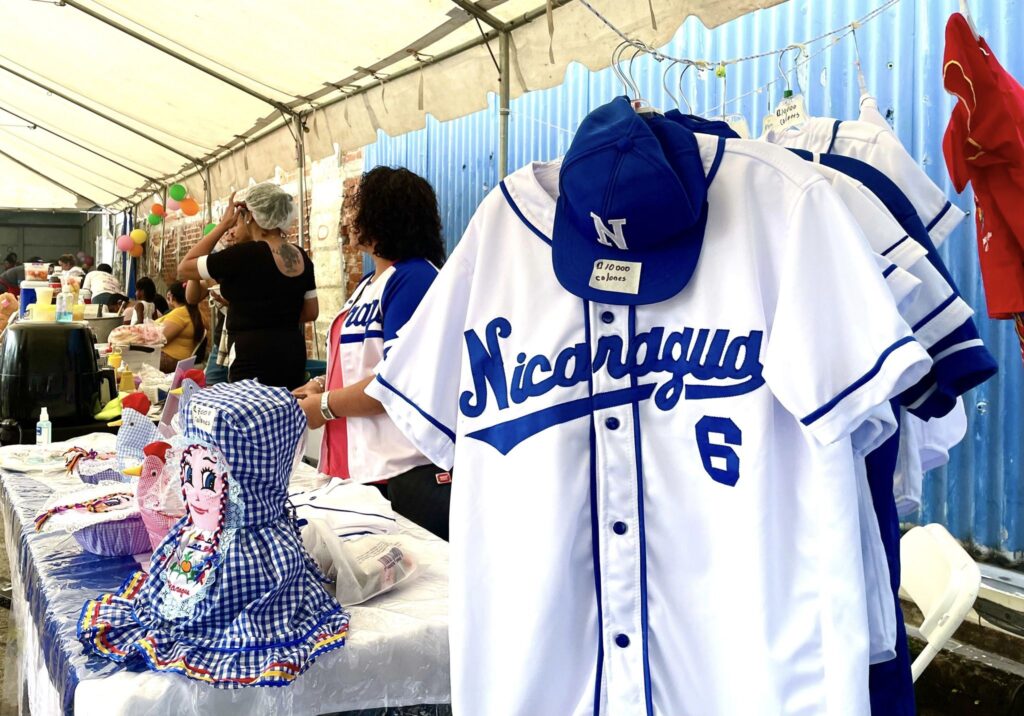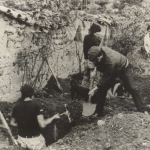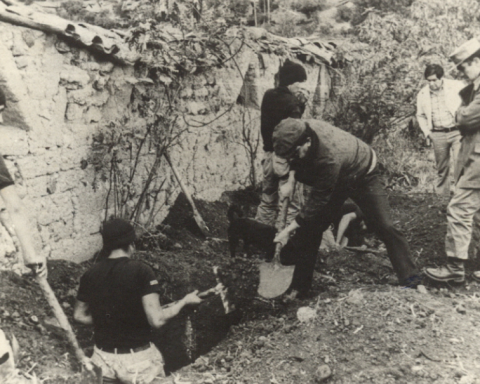Nicaraguan women entrepreneurs, migrants and poor have to face challenges with a double charge of enthusiasm to stay in the fight. And it is so, because the immigration status in Costa Rica limits their access to tax procedures, formalization, credit, training and even the development of contact networks.
While they have the status of “refugee claimant”, they cannot formalize their business. And even with the asylum approved, there are some “xenophobic attitudes” of officials of state and private institutions to which they request some type of service.
Xaviera Molina, from Manitos Mágicas by Doraly, an artisan desserts venture, says that access to credit is essential to grow. In her case, only a couple of banks have responded to her request, but it was until they approved the refuge.
Related news: 2022 is the deadliest year for migrants on the US-Mexico border
Meanwhile, she has supported herself with the income she earns from her graphic design work. “A venture so that one can live, it takes at least 3 to 5 years. So, for the moment, the income that it brings me is very basic, ”Molina details that since she was 12 years old, she has worked to support her studies.
Little capital to start
This lack of capital to boost business is reflected in the jewelry and accessories venture made from recyclable material by Claudia Tenorio, a sociologist, feminist, and environmentalist exiled in Costa Rica.
“I have lost large contracts with stores and companies due to lack of investment,” confesses Tenorio, who says he will not tire of searching.
She currently works as a Spanish teacher, first aid teacher and other activities that generate a fixed income to guarantee rent and food for the month.
When she manages to complete a line of jewelry and sells it, the little profit she makes is to reinvest in the materials. It is not yet self-sustaining, but it does not rule out that in the short term it will be. It is currently being trained in different areas for this.

Another disadvantage of the business life of these women is the low network of contacts for clients. “Starting up is quite complicated. Regularly, when you are a migrant, you know few people who are also Nicaraguan and most likely do not have enough purchasing power”, confesses Molina de Manitos Mágicas by Doraly.
Molina began with pastries and currently sells breakfast and lunch orders that she achieved through alliances she has made with established Costa Rican and Nicaraguan entrepreneurs, whom she met through the Red de Mujeres Pinoleras (RMP).
Good initiative
The Red de Mujeres Pinoleras is an initiative that was born two years ago. Six Nicaraguans in Costa Rica unemployed, overwhelmed, without cash in hand and with needs to supply agreed -via Zoom- one afternoon to meet to ‘barter’ with their creations of jewelry, food, medicines and masks.
In that meeting they recognized the capacity that each one had in different branches and they considered the possibility of selling to their environment. They valued the idea and began to sell their products through social networks. And it was on October 17, 2020, when the life of Costa Ricans became somewhat normalized, that the first RMP fair was held.
A space that, in addition to promoting business ideas, does political and feminist activism, psychosocial accompaniment, designs business strategies, promotes culture, as well as the empowerment of the diverse women that make it up.
Related news: “Deserted” communities of Chinandega, residents want to reach the US.
Jeiko Ellis, founder of the RMP, who “does not romanticize” the ventures in exile, but who fights to make it a reality, prepares food typical of the South Caribbean of Nicaragua as part of the claim of its culture.
“To be an entrepreneur in exile you have to have emotional, political and economic maturity, because we are competing with the pandemic and with the heaps of entrepreneurship that have also emerged. But, we have surpassed ourselves in being able to position ourselves organizationally in what pinolera women are, ”says Ellis.
To which Yulia, from Delicias Caseras Yulia, maintains that despite how hard it may be to sustain her business idea, it is something she does not intend to give up.
“My entrepreneurship is my idea, my strength, my courage to see it come true and that it exists gives me courage, many times I have tried to look for a job, but I feel that I minimized myself and I don’t like feeling that way. That happens when sales are low and I wake up the next day saying we have to work more”, emphasizes Yulia.
This network initially managed to convene 30 women, a number that has been reduced to 21 because others have chosen to migrate to the United States.
great challenge
Ellis and Tenorio admit that being migrants and entrepreneurs is a challenge to access the legalization system of the organization and its businesses. The procedures are bureaucratic and to achieve this they used the alliances they had with other support networks.
“There were days when we walked around with torn shoes, without eating, without a ticket, it has been difficult, it has not been easy, without resources. We have been self-managed and it has been a total challenge. Our strength is the resilience that we have and the strength of the heart, from the womb, that has come out to us to be able to continue fighting here in exile”, says Tenorio
“The Red de Mujeres Pinoleras, through alliances with other organizations, has been empowering us, training us. Even to start a business you study, if we do not know about accounting we are going to sink, if we are not clear about the idea of a business that is not prosperous, I have studied business management with Fundación Mujer, with skinny and I continue studying”, Yulia details.
The clients of these diverse women are mostly Nicaraguan, but Costa Ricans are also joining their market.
All the Nicaraguan women who are part of the RMP work and dream of having a permanent physical business where they can offer their products and services, generating employment for other women, since they do not plan to return to Nicaragua in the short or medium term. Most left the country to save their lives after the threats they suffered from the Ortega Murillo dictatorship.
By: United Voices














